Story by: Bhargav TS & Sricharan R
The Bangalore-based electric vehicle manufacturer, Ather Energy, has bigger plans for the Indian market. As part of its expansion, recently the company entered the Chennai market. With its next expansion planned in Hyderabad, it hopes to achieve a volume of 10,000 units across the 3 cities this year. After receiving good response to its vehicles, the company is increasing the level of localization to reduce cost.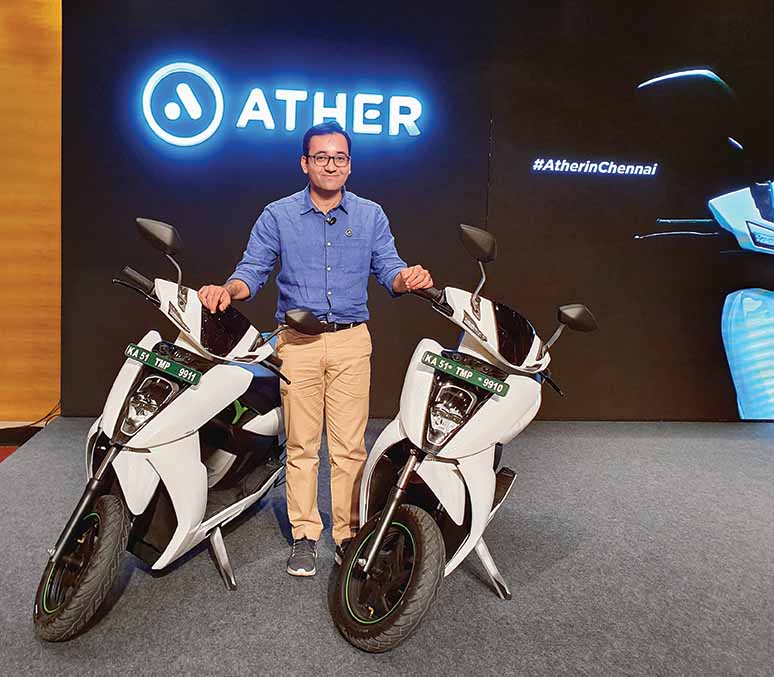
Ather Energy began its journey in October 2013 at the Indian Institute of Technology-Madras Research Park. Tarun Mehta and Swapnil Jain, both IIT-M alumni (B.Tech & M.Tech batch of 2012 in engineering design), set out to build India’s first smart electric scooter. They had brief stints at Ashok Leyland and General Motors, respectively. Now, Ather Energy is funded by the founders of Flipkart, Tiger Global, Hero Motocorp and others.
“Chennai and Bangalore markets always had a likeness for the EVs in the past. We could not predict what would happen in the future. We feel it is right for us to have 2 products now. I think we will have new variants every year. We may also have an architecture for a scooter or bike. But, we have not decided on anything and we are concentrating on the 2 bikes: Ather 340 and 450,” Tarun Mehta, Founder, Ather Energy, told Auto Components India said,
“For the next few years, we will be concentrating on scooters. We believe this market is much bigger than motorbikes. With an increase in the EVs, one can expect a shift towards scooters and bikes in a period of 6 years. This is the reason we have a focus on scooters. We will be concentrating on motorbikes later,” he said.
Ather Energy has designed India’s first truly intelligent electric scooters – Ather 450 and Ather 340 – powered by a comprehensive public charging network, Ather Grid. They are designed and built in India. There are 31 charging Points in Bengaluru and 10 in Chennai, which will be ramped up to 50 by the end of 2019. Ather is drawing up plans to set up a new manufacturing unit in South India involving an investment of $50-100 million in the next few years. The proposed expansion has been necessitated in view of growing volumes for its electric scooters and for strengthening an ecosystem with the government support for electric vehicles. Also, the company has chalked out plan to sell 1 million units by 2023 with its presence in 30 cities across the country.
“We are in talks with the government representatives of Tamil Nadu, Karnataka, Andhra Pradesh and Telangana for the proposed manufacturing plant. The new factory will come in phases as our Bengaluru facility could handle only 20,000-25,000 units per annum. For our one million sales expansion, we foresee an investment of $50-100 million over the next 3 years.” Mehta said,
Designed to perfection
The company’s product line has won 25 awards in the design, automotive and technology categories. With over 51 patent applications, 113 trademarks and 123 design registrations to its name, Ather Energy aims to provide consumers the best possible ownership experience. The company has also designed it lightweight with an all aluminium chassis. This is the first of a kind in this space.
“The design was very important for us. Because, we want to make sure that the product has a compelling look, which most of us do not see in the EV market. EVs usually connote something that is very safe and simple. We want to make sure that we move far away from it. Electric motors have a lot of torque and really good acceleration. We wanted this vehicle to have a level of sporty and young look. This is why you see the kind of lines and angles. The stance is more sporty and it has a slimmer but toned look,” Mehta said.
“A typical scooter will be heavy from the rear. With the design, we gave it a tight look and despite that, we have a larger storage space than any other vehicle in the market. We first came up with the exterior design and then we fit all components inside,” he added.
Localisation
So far, Ather Energy has more than 50% localisation and the company will increase it to 75% in a year. This increase will be mostly in motors which Ather plans to make in India. It is already making battery packs in India. The cells that go inside the battery pack will be made in India in the next 3-4 years. With manufacturing in India, the cost of the vehicles will come down.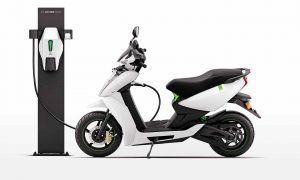
Battery: Power up and heat down
On battery cooling, Mehta said, “A lot of work has gone into the battery and the biggest thing that is happening is inside the battery pack team. We have 2-3 people just working on the team and it is largely designed in India. We use the passive cooling option to cool the battery heat. We also use a variety of interesting compounds that cool the battery rapidly. The vehicle is designed in a way that there is a lot of air movement towards the battery base. The 3mm aluminium casing where the battery sits allows more heat to dissipate.”
Though fast charging is a trend in the EV sector, it has the risk of reducing battery life. Mehta contradicts this. He said their battery is so long that an average consumer could not use it to its full life. He said, there are many things that reduce the life of the battery, but the improved cooling and charging helps the battery sustain longer. He also mentioned the possibility of having the induction charger in the future.
Data security
The Ather bikes are connected always and a huge number of data are collected. This raises the question of data security. What Ather does is to encrypt the data that is collected. They also make sure that the users have an incognito mode where they can restrict the location data being uploaded.
“We also conduct independent audits through third party agencies about the overall system security to make sure that the vehicle cannot be taken over by somebody. We have separated the performance of the vehicle (throttle, braking etc) from the application layers. So, even if the dashboard crashes the vehicle will keep working,” he said.
Charging grid
Ather Energy has launched its in-house charging infrastructure, Ather Grid, for which the company has partnered with cafes, restaurants and other such public places for setting up charging stations. “The vehicle needs to be charged for two and a half hours for 90% of charge. We tap power from the house meters to the charge grid. We can have a community charging station, but here people would love to have a separate charger and there will be a separate charger for everyone. In a public space, we have not decided on the cost yet. It is still free in Bangalore as a part of the introductory offer,” Mehta said.
In spite of India’s flip-flops on its EV policy, two-wheeler electric vehicles seem to be gaining traction with a handful of startups and traditional OEMs now launching or announcing their plans to enter the market. ACI



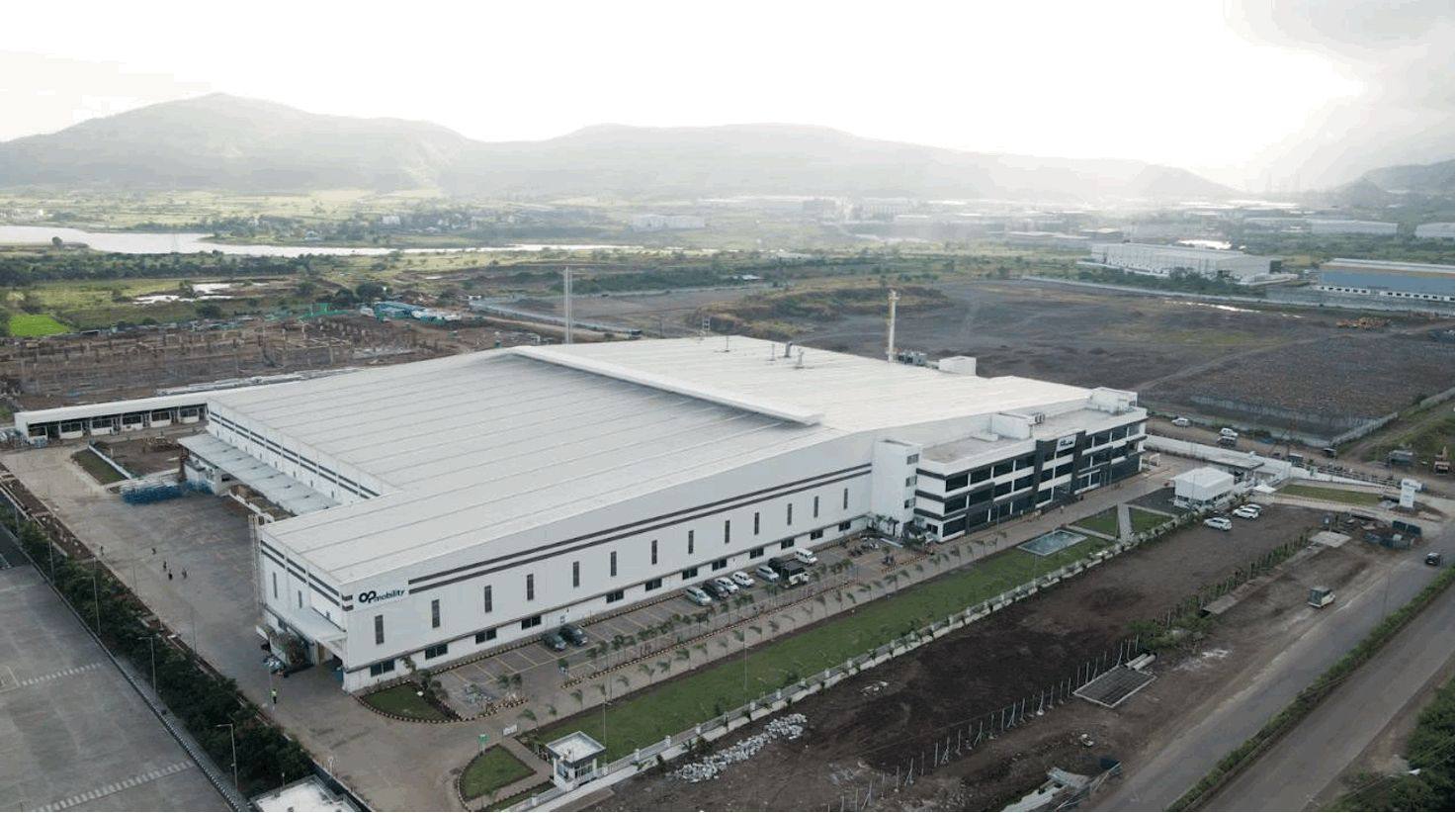
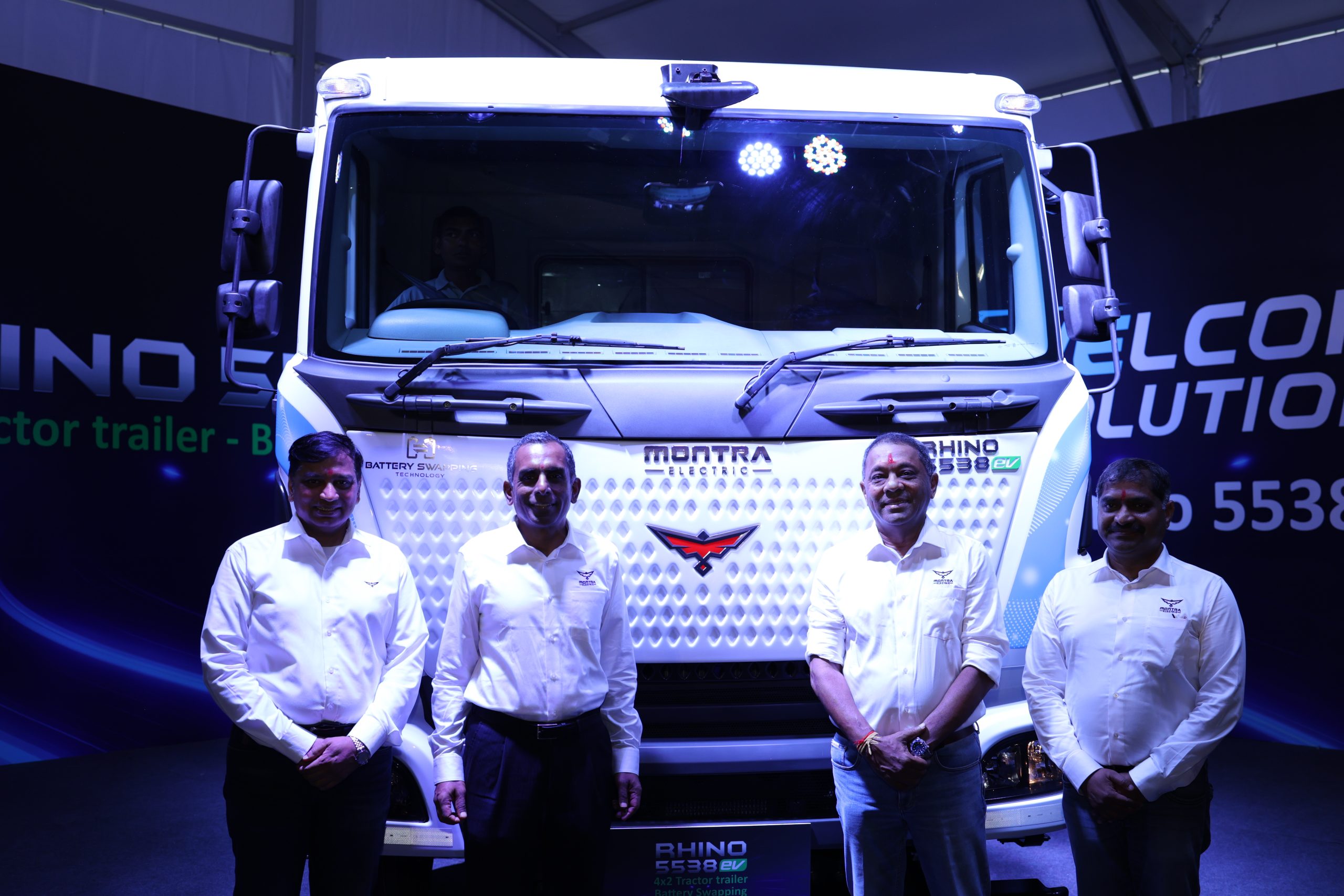
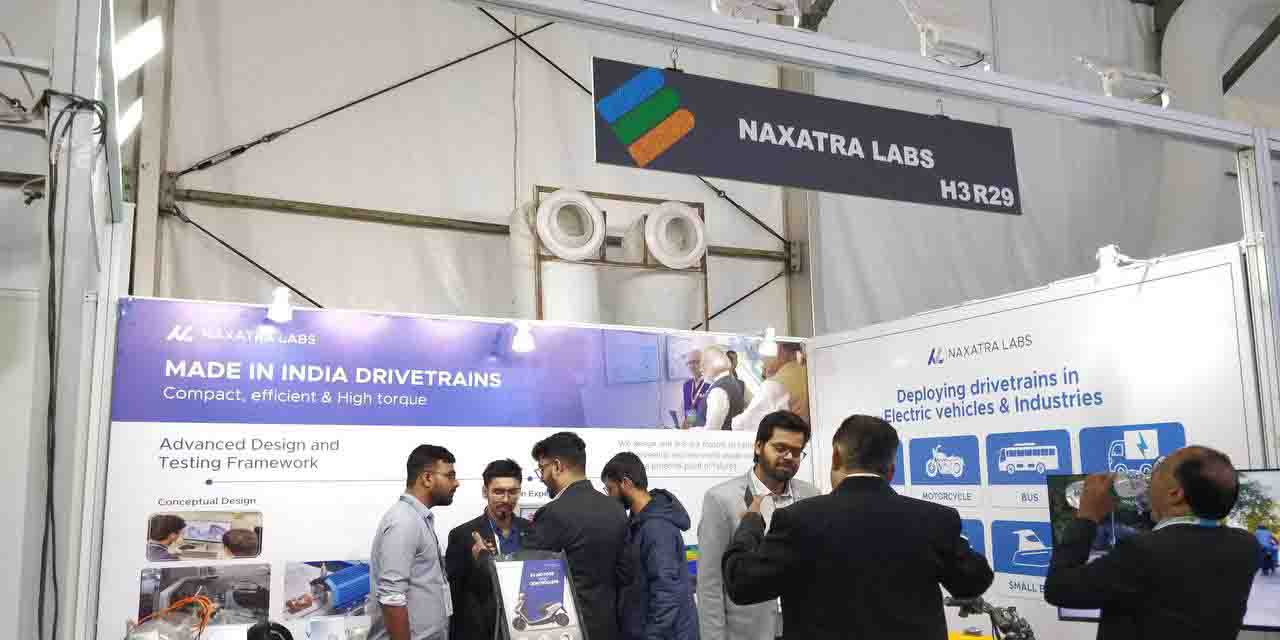
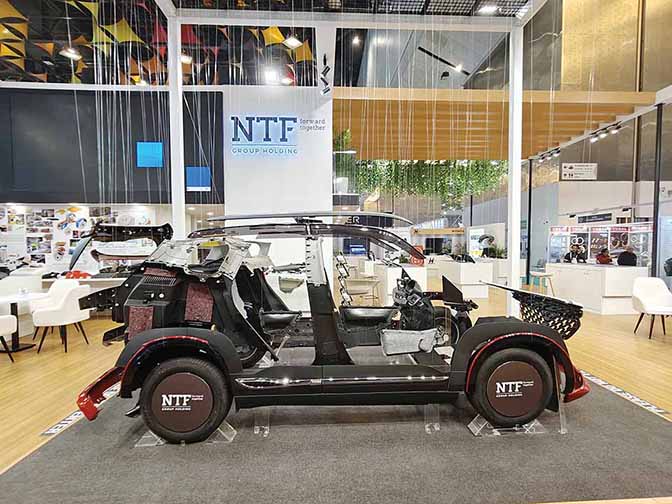




Leave a Reply